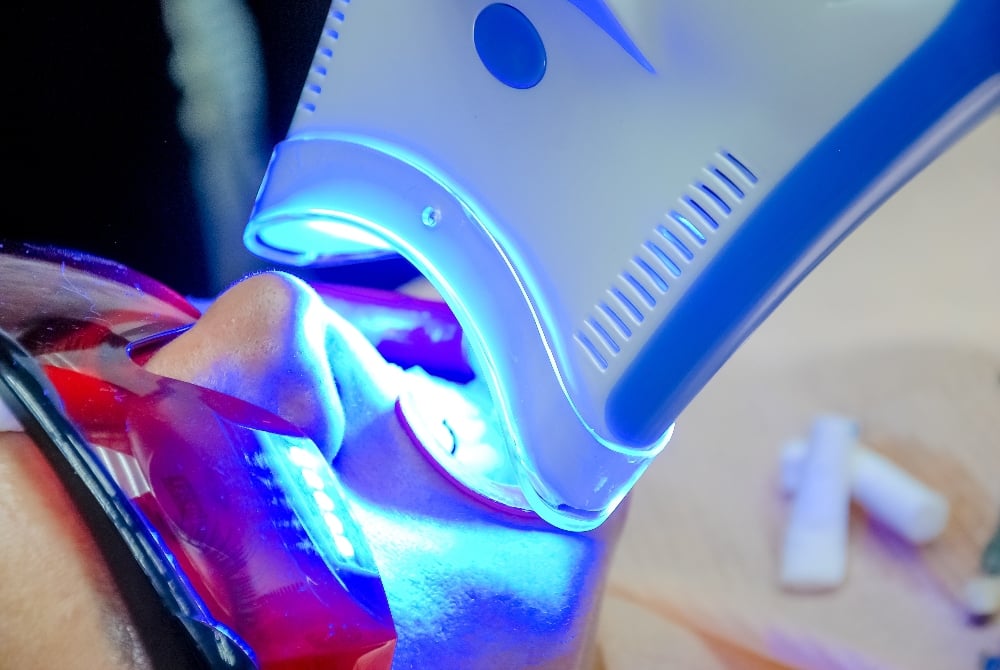Posted by Amy Carbone on Jan 22, 2020 9:00:00 AM
If you've decided to get your laser dentistry (ALD) certification, it's important to prepare. Here's what you might expect as you go through the process.
Introduction to Lasers
Introductory dental laser courses offered by the ALD don't require an exam, but rather offer certification upon completion of the course. All dental professionals interested in pursuing the specialty of laser dentistry must start here and successfully complete at least 2.5 credit hours of an approved class. The most commonly used introductory courses in the industry are the AGD PACE laser course, and the ADA CERP course.
Make sure the course you plan on taking is approved before you attend; otherwise, you could end up needing to retake the course from a verified provider. It might also be a good idea to obtain appropriate documentation of course completion for your records and to provide to the ALD.

Basic Laser Operation
You'll also need to take an approved hands-on training class that teaches dental professionals how to operate a laser in the dental office setting. This course will help professionals connect material learned in an introduction to lasers course with the real-world applications of dental laser equipment. This training doesn't offer its own certification, however, it does provide the foundational knowledge necessary for the standard certification exam. It covers basic scientific principles and clinical applications of laser dentistry procedures but does not stay abreast of the latest developments in dental laser technology. Courses vary depending on the needs of attendees and the experience of the instructor.
Standard Certification
The standard level laser dentistry certification is the most common. It's a three-part program that includes online classes, clinical training, and the certification exam. Here's what you should know:
Certification Goals
The goals of standard ALD certification include:
- A basic understanding of how lasers work and affect human tissue
- How to alter laser properties including power and wavelength to achieve desired results
- An understanding of safety procedures used with dental lasers

Prerequisites
To be eligible for the standard certification, you must have successfully completed an approved laser introduction course, worth at least 2.5 credit hours.
Coursework
During your coursework, you'll learn about the basics of light and laser technology, how lasers interact with human tissue during medical and dental procedures, and how to safely operate a laser in a clinical setting.
Testing
When your online coursework and hands-on training are complete, you can take the online exam for the standard certification. This is a proctored exam supervised by the ALD and consists of 75 multiple-choice questions and must be taken within 90 days of the hands-on training.
Advanced Certification
The advanced certification also has three parts: a written exam, a clinical exam, and a case study presentation. It takes approximately two to three years to complete the advanced program.
Certification Goals
The goals of advanced certification include:
- Building upon previous foundational knowledge in laser dentistry
- Developing advanced proficiency in the chosen laser
- Exceeding the typical standard of care for the dental professional
Prerequisites
To be considered eligible for advanced certification, you must have achieved the standard level certification and be a member of the Academy of Laser Dentistry. You'll need to attend at least two Academy conferences every year, and maintain your membership throughout the process of obtaining your advanced certification. You must be a licensed dental professional or office manager to participate in the advanced program.
Coursework
Although no specific curriculum exists for the advanced ALD certification, the Academy does offer a mentorship program where candidates can be paired with an ALD member who can provide guidance throughout the individual study. Candidates should meet with their mentor often to maximize the benefit.

Testing
There are two exams you will be required to pass for the advanced certification -- a written exam and a hands-on exam in a clinical setting. Each test has its own administration and fee schedule, but they can be registered for and taken at the same time.
Applications of Laser Dentistry
Dental lasers can be used by professionals in a number of dental specialties. General dentists can remove tooth decay and prepare a tooth to receive a filling, while endodontists can use a laser to eradicate bacteria during a root canal. Periodontists can use lasers to reshape gums and perform scale and root planes. Cosmetic dentists can whiten teeth dramatically using laser technology, and orthodontists often use lasers to etch enamel, manage pain, and debond brackets.
Nearly every dental professional can benefit from pursuing a certification in laser dentistry, although not all need to obtain the advanced certification. Before deciding to undergo dental laser certification, it's important to evaluate your patient base and practice resources. Make sure your patients are interested in seeing laser dentistry added to your list of services and that you have the financial resources to purchase a laser and maintain it.
About Treloar & Heisel
Treloar & Heisel is a premier financial services provider to dental and medical professionals across the country. We assist thousands of clients from residency to practice and through retirement with a comprehensive suite of financial services, custom-tailored advice, and a strong national network focused on delivering the highest level of service.
Treloar & Heisel and Treloar & Heisel Property and Casualty are divisions of Treloar & Heisel, LLC.
Insurance products offered through Treloar & Heisel, LLC.
Treloar & Heisel, LLC. and its divisions do not offer legal advice. Please consult a professional concerning this topic.


